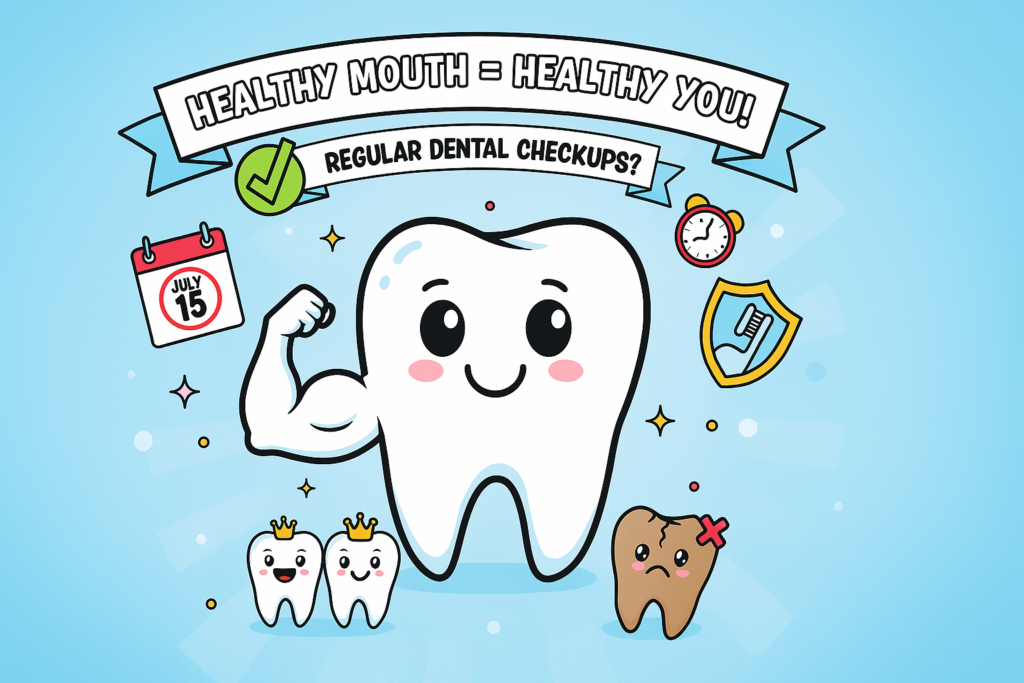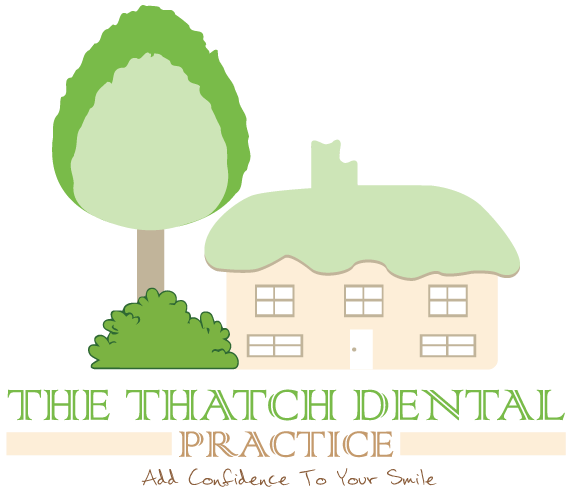Is It Necessary to Have Regular Dental Checkups?

Problem: Many people ignore dental checkups until something goes wrong
Most people visit the dentist only when they have pain, bleeding gums, or a visible problem with their teeth. In fact, a survey by American Dental Association revealed that 42% of adults skip dental checkups regularly and only book appointments when issues become painful.
This might seem harmless — after all, brushing and flossing at home feels like enough, right? But the real risk hides in what you can’t see or feel early on. Dental problems often start small and silently. By the time you notice, it can be more complicated and expensive to fix.
Regular dental checkups aren’t just about clean teeth. They’re about preventing major oral health issues that can affect your overall health too.
Agitate: What happens when you skip regular checkups
Skipping routine visits can lead to problems that grow quietly over time. Let’s break down what really happens behind the scenes:
1. Small issues become big treatments
A tiny cavity doesn’t hurt. But if it’s left untreated for months, it can reach the tooth’s nerve. A simple filling can then turn into a root canal or even a tooth extraction. According to National Institute of Dental and Craniofacial Research, over 90% of adults have had at least one cavity, and early detection during checkups prevents it from becoming a serious issue.
2. Gum disease goes unnoticed
Gum disease, also known as periodontitis, starts with minor symptoms like bleeding gums while brushing. Many people ignore it. But untreated gum disease can lead to bone loss and tooth loss. Research shows gum disease is the leading cause of adult tooth loss worldwide. It also has connections to other health problems like diabetes and heart disease.
3. Bad breath and appearance issues build up
Plaque and tartar accumulate over time, even with daily brushing. This can lead to bad breath, yellowing teeth, and an unhealthy smile. While it may not cause pain initially, it affects confidence and overall oral hygiene.
4. More cost in the long run
Treating a cavity early might cost little. Treating an infection or replacing a tooth costs much more. A study by Centers for Disease Control and Prevention found that preventive dental care costs up to 60% less than emergency dental treatments. Skipping regular checkups often ends up being more expensive than scheduling them.
Real Case Study: How routine checkups prevent bigger problems
Let’s look at a practical example.
A 38-year-old patient (name withheld for privacy) visited a dental clinic after feeling pain in her lower jaw. She had not visited the dentist in over three years. After examination, the dentist found advanced gum disease and multiple cavities that required extensive treatment including deep cleaning and root canal procedures.
Had she come for regular six-month checkups, the dentist would have caught the gum inflammation and small cavities early — requiring only a simple cleaning and one filling.
In another case, a patient in his early 30s came in for a routine checkup. The dentist detected an early-stage cavity on a molar. The cavity was treated in one visit with a basic filling. The total cost was minimal, and the patient didn’t experience any pain.
These two examples show a clear difference: early detection through checkups can save time, money, and teeth.
Solution: Why regular dental checkups matter — and what they include
Regular dental checkups are not just for people with visible dental issues. They’re designed to keep your teeth, gums, and mouth healthy — and to prevent expensive, painful treatments later.
Here’s what typically happens during a dental checkup:
1. Comprehensive oral examination
The dentist examines your teeth, gums, tongue, and overall oral cavity for early signs of decay, gum disease, or other problems. They often use X-rays to spot issues that aren’t visible to the naked eye.
2. Professional cleaning
Even with daily brushing, plaque and tartar build up in hard-to-reach areas. Professional cleaning removes these deposits, reducing your risk of cavities and gum problems.
3. Early diagnosis of serious conditions
Dentists can detect signs of conditions like oral cancer in its early stages. Early detection plays a big role in treatment success.
4. Personalized oral care advice
Dentists provide guidance on proper brushing techniques, flossing habits, and lifestyle factors (like diet and smoking) that can impact oral health.
How often should you get a dental checkup?
For most people, visiting the dentist every six months is recommended. However, your dentist may suggest more frequent visits if you have:
- A history of cavities or gum disease
- Medical conditions like diabetes
- Smoking habits
- Orthodontic or implant treatment
These regular visits create a record of your oral health, making it easier for your dentist to track changes and catch problems early.
Connection between oral health and overall health
Your mouth is directly linked to the rest of your body. Research shows poor oral health can increase the risk of other health problems, including heart disease and diabetes. Inflammation in the gums can spread through the bloodstream, affecting other organs.
A study published by Harvard T.H. Chan School of Public Health found that people with advanced gum disease had a two to three times higher risk of heart attack or stroke compared to those with healthy gums.
Regular dental checkups aren’t just about your teeth — they’re about protecting your overall health too.
Breaking the myth: “I brush daily, so I don’t need checkups”
Brushing and flossing daily are essential, but they’re not enough. Some areas in the mouth are difficult to clean properly at home. Plaque that isn’t removed hardens into tartar, which only a dentist can remove.
Also, dental issues like cavities or gum disease can develop without pain or visible symptoms. By the time you feel something, it may already be serious.
What happens if you’re anxious or busy?
Many people delay dental checkups because of fear or a busy schedule. Dentists understand this — and modern clinics often offer quick appointments, flexible scheduling, and comfortable treatment options.
Overcoming that small hesitation can prevent bigger problems down the line.
The cost factor — prevention saves money
One of the strongest reasons to have regular dental checkups is cost. Preventive care is always cheaper than treatment.
For example:
- A routine cleaning might cost a few thousand rupees.
- A filling costs more.
- A root canal or implant can cost several times that amount.
Catching problems early reduces treatment costs dramatically.
Final Thoughts: Prevention is better than cure
Skipping regular dental checkups may seem like a way to save time or money. But the reality is the opposite. Ignoring early signs allows small issues to turn into painful, expensive, and complicated problems.
Regular checkups:
- Keep your teeth and gums healthy
- Save money on future dental work
- Help detect problems early
- Contribute to better overall health
A 30-minute appointment twice a year can save you from months of pain and high medical bills. Oral health is not a luxury — it’s a part of your overall well-being.
Book your next dental checkup before problems start, not after they appear.








